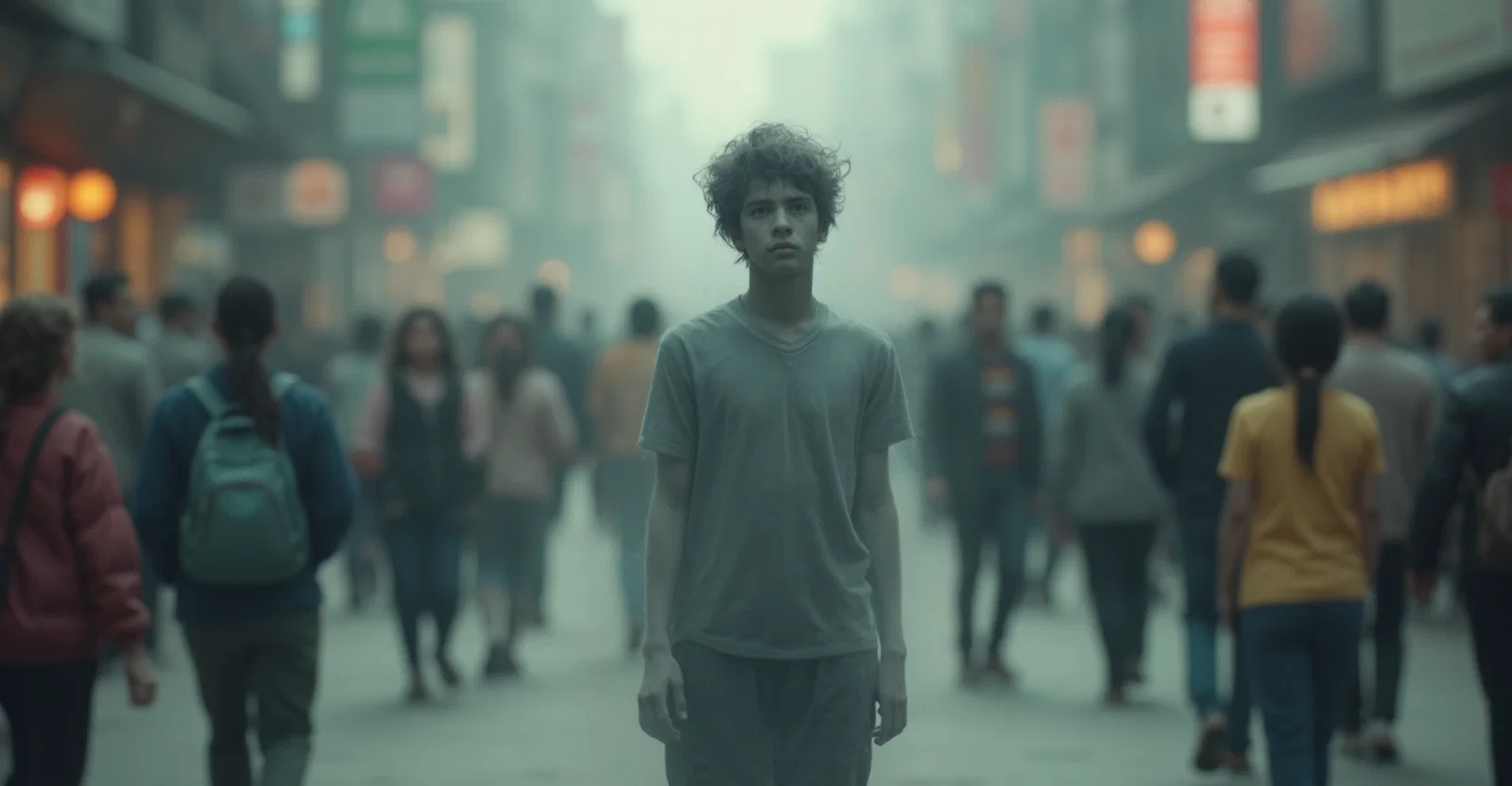“Never underestimate the power of being seen.”
— Brené Brown, Braving the Wilderness
Have you ever felt like you didn’t exist? Like you were walking through life unseen — not because you wanted to be invisible, but because others simply refused to see you?
I spent long stretches of time in the U.S. living like this. In a kind of isolation that wasn’t physical, but existential. No one called me. No one saw me as a potential partner. People actively avoided and ignored me. It does something to the psyche. You start to question your own presence. You wonder: Do I exist if no one acknowledges me?
I’ve wanted to write about this for a long time because I believe something profound: we exist — like electrons — through the process of being observed. In quantum physics, a particle only behaves as matter when it’s observed. Otherwise, it’s a wave of probability — not fully here. It sounds abstract, but I think the same applies to people.
We are material beings, yes — but part of our humanity is sustained by the gaze and recognition of others. When you move through the world and no one sees you, talks to you, or touches your life, it begins to unravel something inside. Quietly, you start to lose your mind.
I once read that in an indigenous tribe, the harshest punishment wasn’t exile. It was being boycotted — not with products, but with presence. The tribe would stop acknowledging the person’s existence altogether. No words. No glances. No recognition. I know what that feels like.
What I’ve never been able to comprehend is how someone can pass another human being every day — in an office, on the street, at the gym — and never say hello. How someone can look through another person as if they don’t exist, simply because they don’t fit into some narrow template of what’s “worthy” of attention.
And this isn’t just my story. Science backs it up.
One of the most compelling pieces of evidence comes from the Harvard Study of Adult Development, the longest-running study on adult life. Dr. Robert Waldinger, the study’s director, emphasizes that the quality of our relationships is the strongest predictor of long-term health and happiness. He notes that even small acts of recognition, such as making eye contact with service workers, can offer psychological benefits.
Further reinforcing this, a meta-analysis by psychologist Julianne Holt-Lunstad found that strong social relationships increase the odds of survival by 50%. Conversely, loneliness and social isolation have been linked to a higher risk of illnesses, including heart disease, stroke, anxiety, depression, and dementia.
Moreover, the Centers for Disease Control and Prevention (CDC) highlights that high-quality relationships can help people live longer, healthier lives. Social connection reduces the risk of chronic diseases and serious illnesses, such as heart disease, stroke, dementia, depression, and anxiety.
These findings underscore the profound impact of being seen and acknowledged. They affirm that our need for recognition isn’t just emotional—it’s biological and vital to our health.
I look at people with enormous interest. Every person, to me, is a whole world. I never assume someone is unworthy of connection. That’s why living in a place like Los Angeles was so jarring. There, I often saw how surface-level interaction replaced genuine curiosity. People became background — scenery — unless they met certain standards. As if being a human being wasn’t enough to warrant being seen.
And it made me think of something else: you know the saying, “The goal justifies the means”?
Well, I’ve come to believe that some people live by that principle — and in doing so, they treat others as mere means. Expendable materials on the path toward their own ambitions. For them, people are tools — sometimes useful, sometimes in the way. Even when they’re polite or appear considerate, it often feels like the real goal is elsewhere. People only matter as long as they serve it.
But I believe the opposite. People aren’t the means. People are the goal.
Because the most precious, the most beautiful thing we have in life is the process of interacting with others. Yes, goals matter. Dreams matter. But if we lose sight of the people along the way — the actual, breathing, complex humans right in front of us — then every goal starts to feel hollow.
I’ve learned that when we pause along our path, even for a moment, and genuinely meet the people we cross — when we look at them not for what they can give us, but for who they truly are — something sacred happens. That moment of connection, however brief, becomes the most meaningful part of the journey.
And I think that’s when we are living our truest life.



